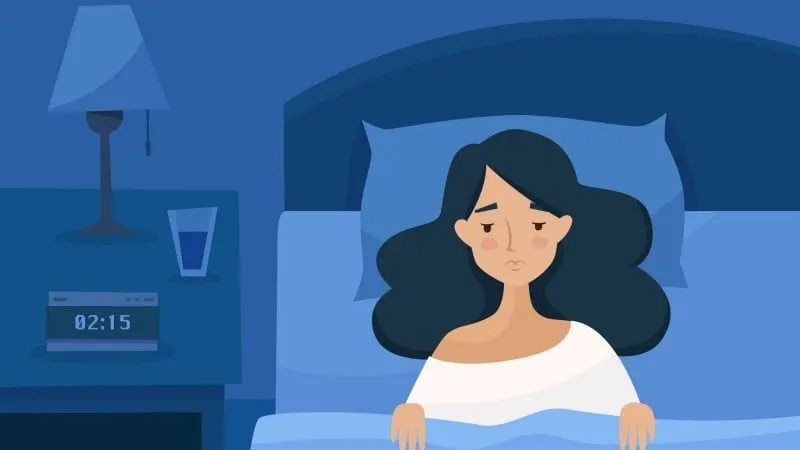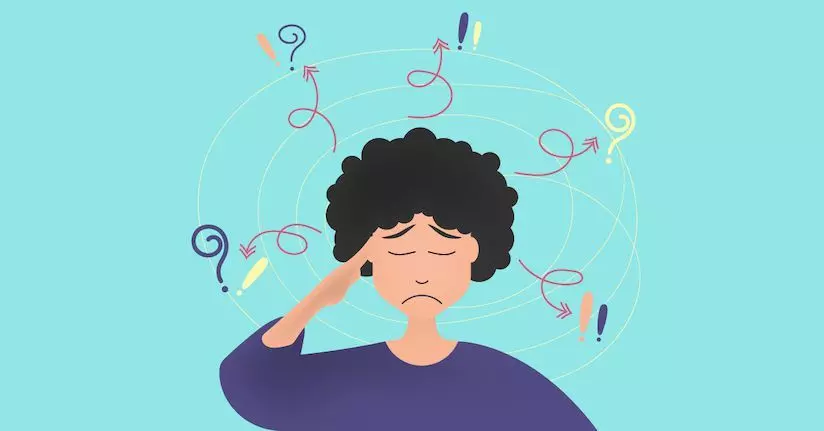Sleep and stress deeply and closely link each other, which has been proven by several researchers and studies.
Stress can make it difficult to fall asleep or stay asleep, on other hand, sleep deprivation can increase stress levels.
Chronic stress may lead to sleep-related disorders like insomnia, poor sleep, etc, which make it harder to deal with stress.
So it is necessary to manage stress, before reaching chronic stress, which is not a big deal, through applying several healthy lifestyles.
Sleep And Stress
Contents
Sleeping is an essential part of our daily life which overall maintains physical and mental health.
It is recommended that a healthy adult should sleep for 7 to 9 hours so that they are charged for the next day.
This number will be changed if a person is sick, stressed, or extremely active and need more sleep to recharge.
Stress is a natural reaction to the demands and challenges in our lives, but it also serves as a motivator.
WHO claims that stress is the major factor of mental illness, which is linked to physical health problems, across the globe.
Stress is associated with sleep, where continuous work and workload cause stress making it hard to person fall asleep.
And this leads to a Lack of sleep which is allied with insomnia and oversleeping, which can make stressful situations worse (1)
However, oversleeping is also not good for health, which may lead to several health like diabetes, low mental health, heart disease, etc.
Check Out – Techniques That Will Manage Your Stress

How Does Lack of Sleep Link With Stress?
Lack of sleep is associated with stress but how? there are several reasons for lack of sleep linked with stress (1)
When you are lacking sleep your body’s cortisol level is disturbed, which is also allied with high BP, blood sugar, and inflammation, which are linked to stress.
Less sleep makes it harder to think clearly, which enhances irritation, and hopelessness, which can heighten stress.
Sleep deprivation reduces the capacity to handle stress, which worse the stress, and anxiety situation in daily life (2).
Also, make a person more emotional, and make it harder to control and manage the everyday stressful situation, and anxiety.
Check Out – Tai chi For Stress Relief That Can You Try – At Home
Link Between Stress And Sleep
Both play an important role in regulating daily tasks, here are 2 main hormones include cortisol and melatonin play a vital in regulating sleep.
Cortisol is a primary stress hormone, which is the highest in the morning and becomes low at night to promote drowsiness which helps in sleep.
Whereas, melatonin is a hormone that produces by our brain in response to darkness to promote sleep (3)
A meta-analysis reported that (MT) was beneficial for treating most primary sleep disorders over the short-term (4 weeks or less).
Evidence suggests melatonin may reduce the time it takes for people with delayed sleep phase syndrome to fall asleep.
It also helps promote total sleep time, aids with fatigue from jet lag, or balances circadian rhythms and rotating shift work.
During 8 randomized control trials with 300 participants assessed the efficacy of (MT) for promoting sleep-in shift workers (4)
Another study showed that (MT) also significantly increased total sleep time, and quality compared to placebo.
In a normal sleep cycle, cortisol levels are low at night, which allows melatonin to raise and promote sleep.
However, stress and chronic stress disturb the normal circadian rhythms by suppressing the melatonin level and increasing cortisol levels.
This is the reason person faces difficulty falling asleep at night, and in the long-term, it leads to insomnia and other sleep disorder.
Is Oversleeping May Leads To Stress, Anxiety, and Depression?
According to health. Cleveland clinic’s stress is a possible create symptom of depression and anxiety and it doesn’t cause depression.
Several studies have shown a higher rate of depressed patients among long sleepers compared to normal sleepers (5) (6).
But what considered oversleeping? Sleeping 10 hours or more is considered hypersomnia or too much sleep.
The person feels nausea, and nervousness after waking up from oversleeping, it may also be noticed in low mood and in depression (7)
Research conducted in 2008, shows that women are more likely to notice oversleeping with depression, especially under 30 of age.
Sleep deprivation effects on the Body
Research shown not getting enough sleep can cause low energy, irritable, low concentration, etc (7).
Lack of sleep due to sleep disorders, work schedules, and chaotic lifestyles continues to threaten both health and safety.
Another study found links b/w inadequate sleep and a wide range of disorders including:
- Hypertension (high blood pressure)
- Obesity
- Type II diabetes
- Low immunity
- Cardiovascular disease
- Arrhythmias
- Mood disorders like bipolar and depression, and poorer well-being
- loneliness
- kidney diseases
- dementia
- Irritability
How Does Stress Affect The Body?

Stress can affect the body in various ways, including headaches, make you angry, and irritation, and affect the brain negatively.
Research has shown that chronic stress and normal stress both can impact the brain and immune system by weakening them.
Over time stress can weaken your immune system, which may increase the risk of diseases and several health problems including:
- Increased heart rate and blood pressure
- headaches
- muscles tension
- mental issues like anxiety, depression, etc
- digestive problems
- sleep disorder, insomnia, narcolepsy, restless legs syndrome, etc.
- fatigue
- weak immunity
- diabetes
- skin disorder like eczema, acne, psoriasis, etc
But if stress becomes chronic stress it can increase the risk of several health issues include:
- Make worse the anxiety situation
- post-traumatic stress disorder (PTSD)
- cardiovascular diseases
- increase the chance of stroke
- Irritable bowel syndrome and acid reflux
- heart disease
- insomnia (where a person makes it difficult to fall asleep)
- low libido in both women and men
- skin irritation and disorder
- respiratory infections (Graves’ disease and rheumatoid arthritis)
So manage your stress, before it becomes chronic through maintaining overall health and well-being.
If you experience any negative thoughts, and want help, so talk to a professional doctor, which will provide the ideal treatment for you.
Simple Strategies For Combat Stress and Improve Sleep
There are several strategies for combat stress and imporve sleep quality (8) which include:
Exercises
Regular moderate exercise can help in decreasing stress by releasing endorphins in the brain (a hormone that is responsible for pleasure feelings)
Severeral studies shown that frequent exercise is allied with well-being and lower rate of anxiety disorder, and other health issues (9)
Make you target at least 30 mint of moderate exercises, such as fast walking, cycling, and simple running (10)
Daily exercise makes people more resistant to the emotional effects of stress, which may shield them from diseases linked to long-term stress exposure (11) (12).
Meditation
Dhyaan is a asana where you keep your mind and soul calm or set the boundaries of the countless thoughts going on in your mind.
A study found an 8 weeks meditation program showed positive changes in the brain, which allied with learning, memory processing, and emotion regulation in people.
Meditation is one the best way to reduce stress, anxiety and depression.
During mindfulness meditation programs shown that it enhance the quality of life through reducing anxiety, stress, and depression.
Music
Studies shown that music can reduce the stress, and mood related disorder, however it depends on what type of music are you listen.
Rock, remixed, etc is consider to increase instant energy levels, relax the body, change the mind immediately, etc.
Stanford University researchers have reveal that listening to music to be able to change brain functioning to the same extent as medicines, also become a tool to reduce stress.
Some studies reveal that music was effective in suppressing a cortisol or decrease cortisol levels after stressful situation, compare to non-music listener (13).
Other Techniques
There are other various techniques to reduce stress, which we already explained in our previous topic in deeply, which include:
- Practice Relaxation Techniques
- Deep Breathing
- Progressive Muscle Relaxation
- Spend time with your pets
- get enough sleep
- spend time in nature
- Practice self-care
- avoid caffeine, alcohol, especially 4 hour before bed time
- learn say to “NO“
- connect with others & disconnect with mobile, and laptops
- find time for activities you enjoy
- practice gratitude
- find ways to manage your time effectively
Down Line
Without enough sleep, you may feel low and unable to focus, on the other hand, too much sleep can also affect your health.
Sleep and stress are allied with each other, where stress makes it difficult to fall asleep, and other hand lack of sleep leads to stress.
Insomnia is the most common sleep disorder, where person hard to fall asleep, which affects about 35% of adults.


